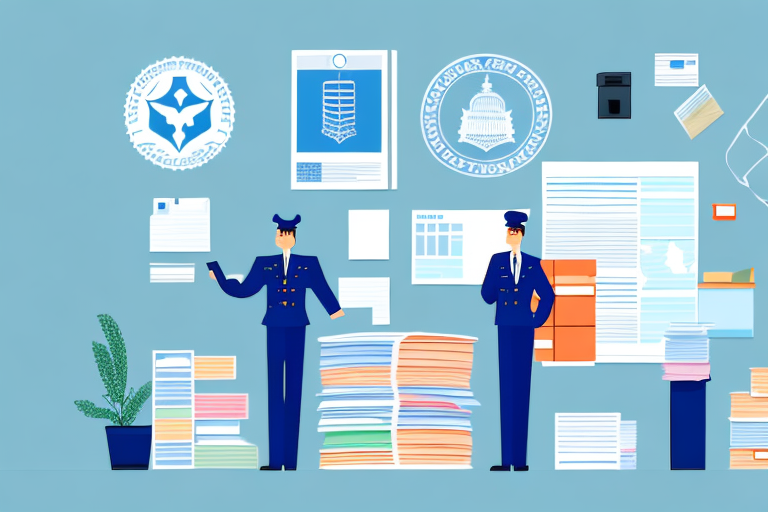In the world of international trade, managing customs bond issues is of utmost importance. Customs bonds are a key component of the global supply chain, serving as a financial guarantee to ensure compliance with customs regulations and obligations. Failure to properly manage customs bond issues can result in delays, penalties, and even the suspension of import and export activities.
Understanding Customs Bond Requirements
Before delving into the intricacies of managing customs bond issues, it is crucial to have a comprehensive understanding of customs bond requirements. Customs bonds are essentially a form of insurance that provides a guarantee to the customs authorities that all applicable duties, taxes, and fees will be paid in a timely manner.
Customs bond requirements may vary from country to country, but they generally involve obtaining a bond from a surety company or a licensed customs broker. The bond serves as a financial guarantee to cover any potential liabilities and ensure compliance with customs regulations.
It is important to note that customs bond requirements can also depend on the type of goods being imported or exported. Certain goods, such as hazardous materials or controlled substances, may require additional documentation or higher bond amounts to ensure compliance with safety and security regulations.
The Importance of Customs Bonds in International Trade
Customs bonds play a vital role in facilitating smooth and efficient international trade. They provide assurance to customs authorities that importers and exporters will fulfill their obligations, ensuring the collection of government revenues and the protection of the domestic market.
Moreover, customs bonds instill trust in traders and help create a level playing field for all participants in the global supply chain. By requiring a customs bond, authorities can hold accountable those who fail to comply with regulations, thereby deterring illegal activities such as smuggling and counterfeiting.
Additionally, customs bonds serve as a financial guarantee for the payment of duties, taxes, and fees associated with international trade. When an importer or exporter obtains a customs bond, they are essentially promising to pay any outstanding amounts owed to the customs authorities. This ensures that the government can collect the necessary revenue to fund public services and infrastructure development.
Types of Customs Bonds and Their Uses
There are different types of customs bonds, each serving a specific purpose in the realm of international trade. The most common types include import bonds, export bonds, transportation bonds, and warehouse bonds.
Import bonds provide a financial guarantee that duties, taxes, and fees will be paid upon the entry of goods into a country. Export bonds, on the other hand, serve as a guarantee that exported goods will be in compliance with all applicable regulations and restrictions.
Transportation bonds are required for the movement of goods within a country, ensuring compliance with customs regulations during transit. Warehouse bonds, on the other hand, are used when goods are placed in a bonded warehouse, deferring the payment of duties and taxes until the goods are released.
Another type of customs bond is a drawback bond. Drawback bonds are used to claim a refund of duties, taxes, and fees paid on imported goods that are subsequently exported or destroyed. This type of bond allows businesses to recover some or all of the costs associated with importing goods that are not ultimately sold within the country.
Step-by-Step Guide to Applying for a Customs Bond
Applying for a customs bond involves a series of steps to ensure a smooth and successful process. Here is a step-by-step guide to help you navigate through the application process:
Step 1: Determine the type and amount of bond required – Before applying for a customs bond, it is crucial to understand the specific requirements and the amount of coverage needed.
Step 2: Choose a reputable customs bond provider – Selecting a reliable and reputable customs bond provider is crucial in ensuring the smooth management of customs bond issues. Conduct thorough research and seek recommendations from industry peers.
Step 3: Gather the necessary documentation – Prepare all the required documentation, including business licenses, financial statements, and any other relevant supporting documents as specified by the customs authorities.
Step 4: Complete the application form – Fill out the customs bond application form accurately and provide all the required information. Any inaccuracies or omissions may result in delays or even rejection of the application.
Step 5: Review and sign the bond agreement – Carefully review the terms and conditions of the bond agreement. Ensure that you understand your rights and responsibilities as well as any potential liabilities.
Step 6: Submit the application – Submit the completed application form along with the required documentation to the customs bond provider. Keep a copy of the application for your records.
Step 7: Follow up and track the progress – After submitting the application, follow up with the customs bond provider to ensure that the process is moving forward smoothly. Track the progress and address any questions or concerns that may arise.
Step 8: Receive the customs bond – Once the application is approved, you will receive the customs bond document. Ensure that all the information on the bond is accurate and matches your requirements.
Step 9: Maintain proper documentation – It is essential to keep a copy of the customs bond document and all related paperwork for future reference, including renewal and potential claims.
Step 10: Ensure compliance – Finally, make sure to comply with all customs regulations, pay duties and taxes on time, and fulfill all other obligations as specified in the customs bond agreement.
Applying for a customs bond can be a complex process, especially for those who are new to international trade. It is important to note that the requirements and procedures may vary depending on the country and specific customs regulations. Therefore, it is advisable to seek professional advice or consult with customs authorities to ensure compliance with all necessary procedures and regulations.


